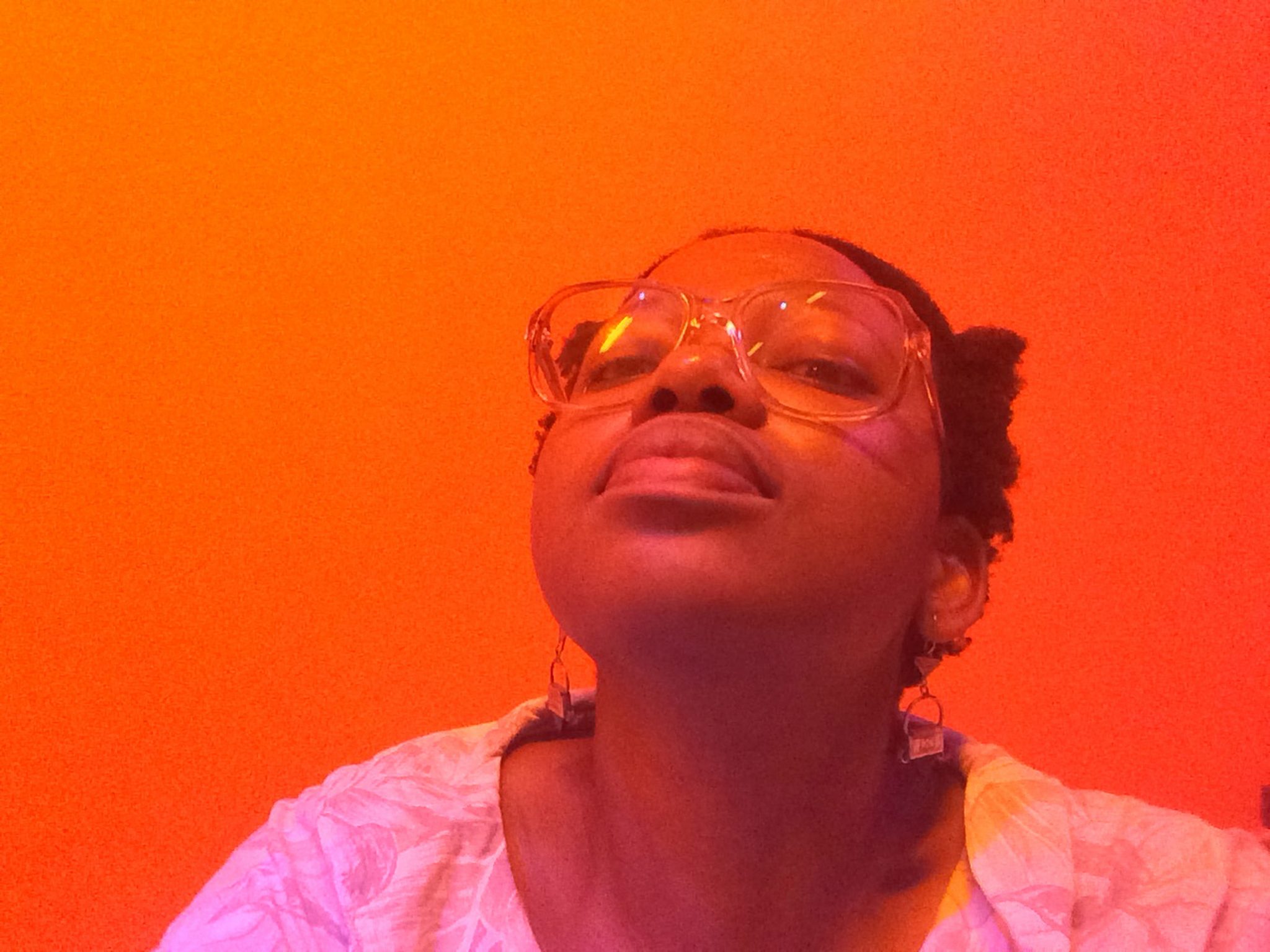“Sometimes it’s more about resting. Things flow easier when there’s less pressure.”
At the Sharjah Biennial in 2017, Dineo Seshee Bopape exhibited away from the main exhibition galleries, in a dusty, sun-beaten courtyard. When I came upon her presentation, it didn’t immediately register as art; more like the ruins of a local shrine, with modest ritual offerings: a stack of burnt bricks, chunks of coal on torn strips of crumpled foil and plastic water bottles half-full of pale liquid. The space felt used. Later on, when I wandered past the site at night, its eerie power was amplified by moonlight.
The piece’s title, +/- 1791 (monument to the haitian revolution 1791) (2017), pointed specifically to its feeling of blighted history. This work was my introduction to Bopape, and her earthy vocabulary of materials: herbs, crystals, ash, soil, feathers, light. Video, too, has been one of her most consistent mediums, often including music, both by Bopape and by great musicians of the past, such as Nina Simone. Her gallery shows have a way of standing in stark contrast to their white-walled containers. At Art in General, New York, in 2016, she installed a thick bed of carved soil; at Palais de Tokyo, Paris, the same year, a hill of rubble; for the Artes Mundi prize in Cardiff this year, murals of painted mud.
Since Sharjah, Bopape and I have attempted multiple methods of conducting a formal dialogue. First we tried email, which faltered, then we tried exchanging voice messages, which had its own awkward limits. All our correspondence was made particularly tricky because, in the past years, Bopape has been nomadic, moving through residencies across the world (as have I). Born in Polokwane, South Africa, in 1981, she attended Columbia in New York for graduate school, and when we found time to record a video conversation recently she was on a residency in Paris, where she was studying “the energy and resonance of minerals to translate them into song”.
Bopape responded to most of my questions with long pauses, and often used “yeah” in the punctuative way that others use “um”. We spoke for two hours during an overlap in our very different time zones, just after I woke and just before she fell asleep. Later, she made a few text edits through email, using various forms of punctuation.
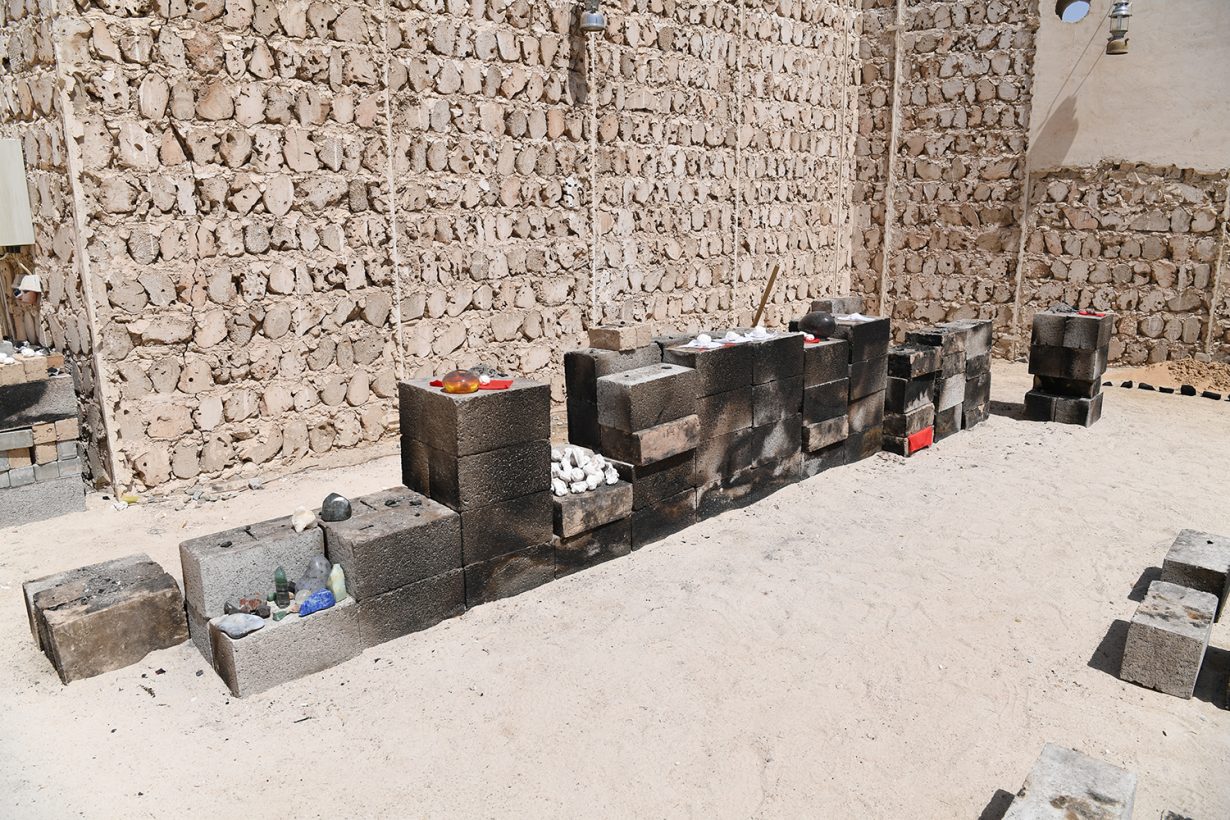
A Current of Somebody Else
Ross Simonini You told me that when you think of someone, they often write to you soon after.
Dineo Seshee Bopape Yeah. More and more.
RS What do you think about that as a phenomenon?
DSB I think I might just be more and more conscious of it. (Forgetfulness.) It’s not quite terrifying, but it almost is. Things are so quick and I wonder about the thoughts that pass through my mind, what they mean physically. And I wonder if thinking about somebody when they call does something to the other thoughts that one is not conscious of sending out (and the denial of it is a wonder).
RS Are you saying these thoughts can be disruptive?
DSB Sometimes when I feel unhappy about something I feel as though that person/thing/ being knows that I’m unhappy about them/it. I’m not sure whether it’s the thoughts transferring, or whether I am being paranoid that ‘they’ have read my thoughts, or whether the universe is that open, we don’t quite have the borders that we imagined, things are more permeable…
RS Do you try to control your thoughts?
DSB That reminds me of a meditation practice I often do, where I’m asked to observe rather than control the thoughts coming through. That creates a different experience than I shouldn’t be thinking about that right now.
RS Is it ever necessary to control, though?
DSB When you say that, that reminds me: I keep imagining political prisoners in the ‘history’ of South Africa, the thoughts that might’ve gone through their minds, let’s say Winnie Mandela’s mind when she was incarcerated, in solitary confinement. At those moments, you – she/the person/I/one – have to have and exercise some kind of control, because otherwise it’s possible to let fears just take over your mind.
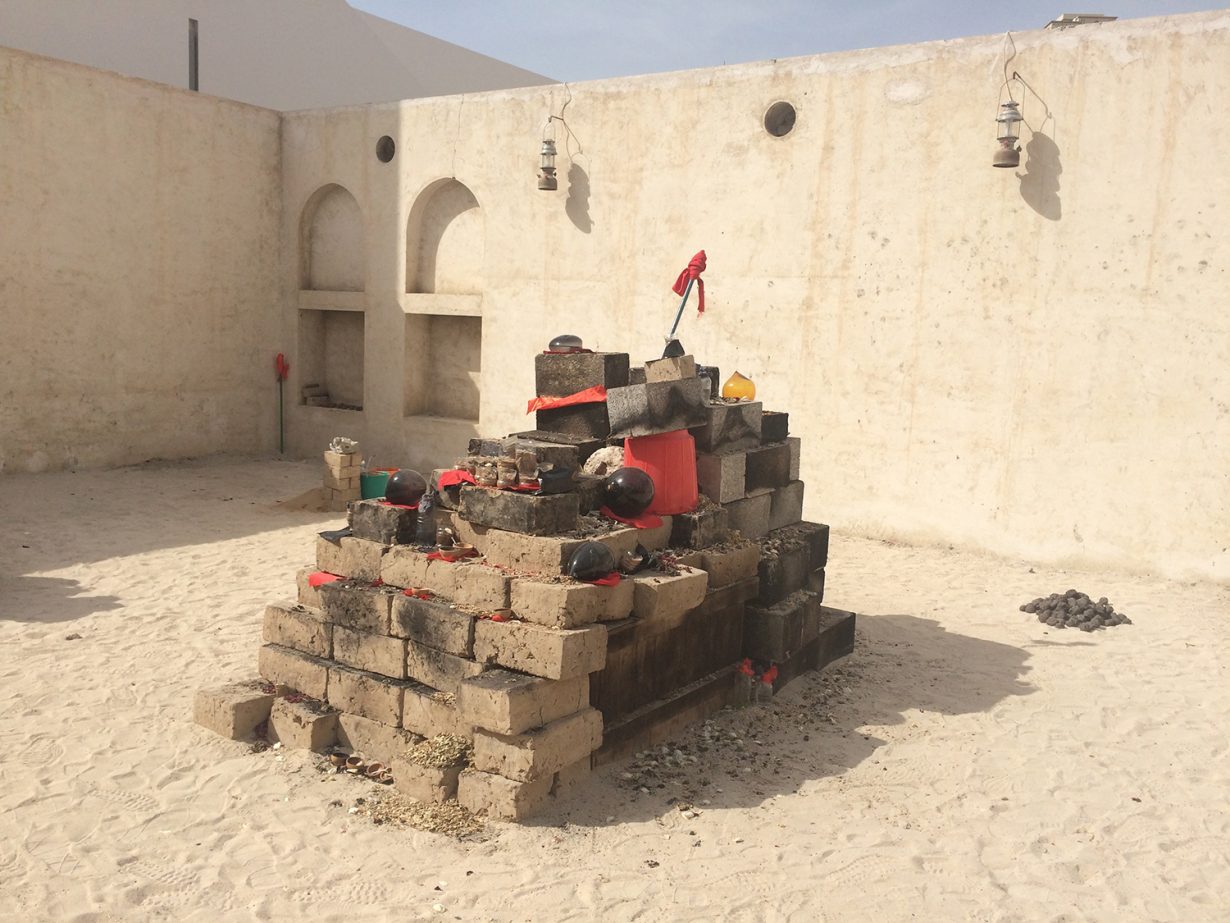
RS I remember in Sharjah, you and I were talking about Bessie Head’s 1973 novel A Question of Power, which is a portrait of a woman losing her mind. Maybe we try to control thoughts to avoid insanity?
DSB Yeah. ‘Thoughts’ are already being controlled. We’re taught to do so as young kids – to ignore certain parts of reality, particular ways of hearing or trusting the information that one is receiving from the surrounding environment.
RS What thoughts from your childhood are you trying to change?
DSB There are a lot. Where to start? I grew up in post/transitional-apartheid South Africa in a township, in a village, in a city, in a town… so I’m working through those kinds of peripheral, and integral, structural ideas/weeds… and my place in the world in relation to, not in any order, colonialism, patriarchy, ethnocentrism, racism, classism, capitalism, feminism, MTV, media, plants, soil, space, beauty, water, ethics.
RS How do you change these?
DSB Through research, I’m trying to ‘understand’ what happened on the African continent, between Bantu, between Africans and Europeans, and between Africans and Arabs etc. I spend a lot of time thinking about what information is and was taught in school, and socially, and what information is and was not. It takes a lot of effort to go digging for what actually happened in the 1600s, the 1800s, etc.
RS I find that reading is helpful for turning off assumptions. You can replace your own thoughts with someone else’s.
DSB That reminds me of something that Kara Walker once said in an interview, about the struggle of being caught up in the narrative of the protagonist of a story. I think she was speaking about Gone with the Wind. It could apply to ideologies in general, and to being swept by a current of somebody else’s thoughts. This could be pleasant, or not.
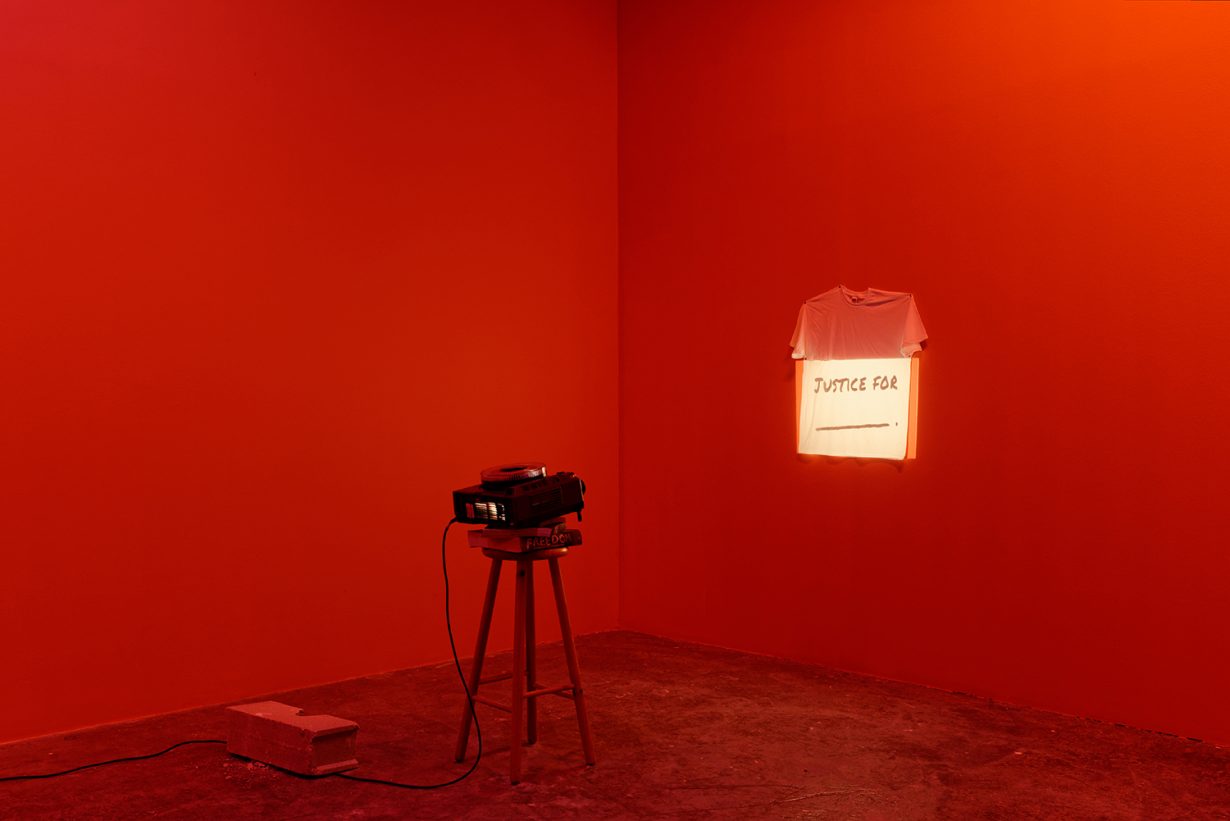
An Inverted Commerce
RS You are often moving through different residencies. Do you enjoy being nomadic?
DSB Yeah…? This answer changes depending on the day. I have a preference generally for longer residencies rather than ones for one month or two weeks. Yeah. That would feel too short.
RS How long are you in Paris?
DSB Six months. Perhaps.
RS Have you been focusing on one project while there?
DSB I’m doing a residency, which is supposed to be focused on a research project, but you know how it goes: the other project starts calling and ‘all of a sudden’ you have projects and conversations in the US and Italy. It’s also so hard to be in one place anymore. One mentally goes everywhere.
RS You’re not really in Paris.
DSB Even though I’m in Paris, I feel as though I’m everywhere else. I’m not sure what it feels like then to be fully here, or whether it’s possible to really be here as well.
RS Is our world moving towards placelessness?
DSB Maybe, but what would be the point of the body then? This weight that we are. We have to bear the shadow that travels with us so that we travel through or with it. We somehow can’t deny it.
RS Are your installations a way for you to reclaim placeness?
DSB Yeah, definitely. (It depends.) And the research and the search for particular elements for the work, for soil or for clay or certain herbs or objects. That inserts me into the place. And also involving the people who are from the place helps me to be in communication with that place. Perhaps there are also various energies that are passing through a place or through people at a particular spot at a particular time. That then makes the place apt for an event where one is able to receive all the information needed, parallel to it or not.
RS Do you plan your installations or just respond to a place when you get there?
DSB One thing leads to another. I have a general plan but if I get too specific, if I know exactly what I’m going to do, it doesn’t work out well. It gets a bit boring for me in the process of making, realising. To discover new things, there has to be some room for things to come. Sometimes I have a list of ingredients going in, but I’m not sure how they would come together. I have a feeling, like knowing I want to use clay here but not being sure exactly what the clay would be doing or how it would be arranged in the space.
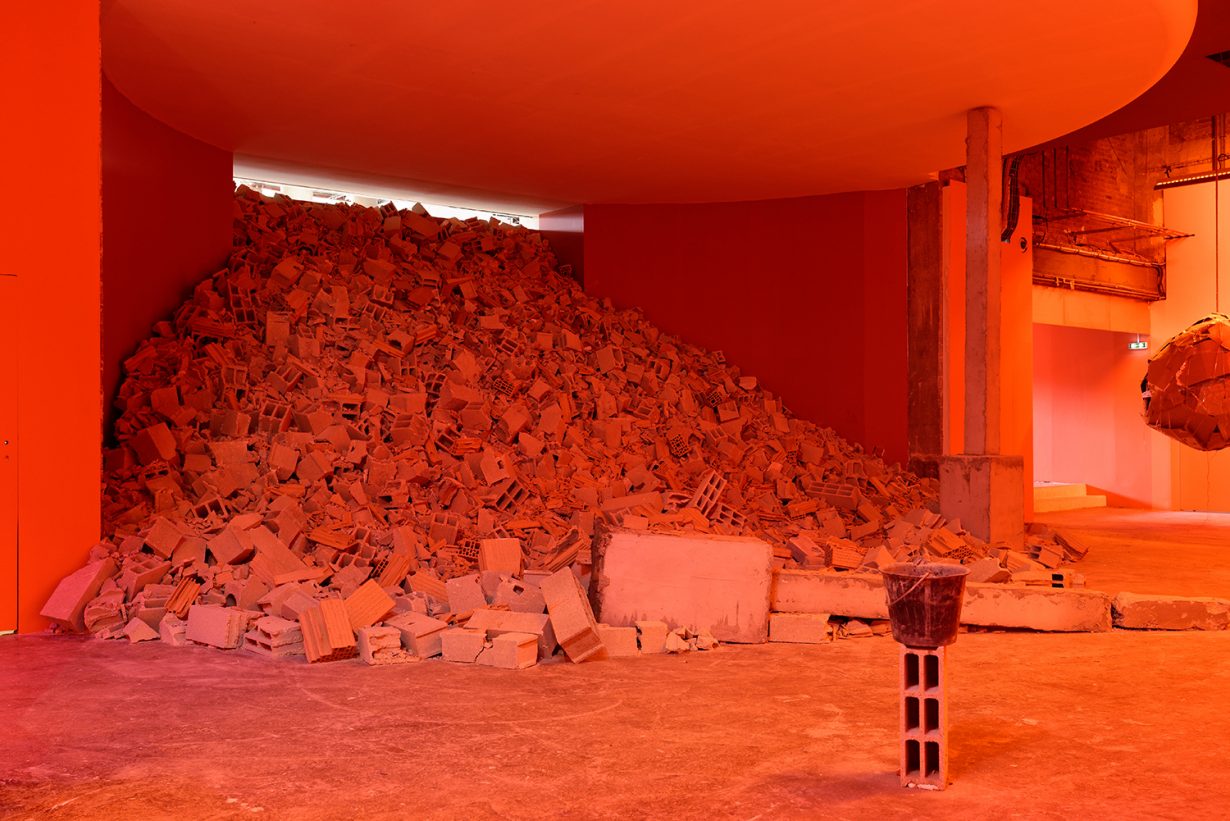
RS Do you try to develop that feeling?
DSB Sometimes it’s more about resting. Things flow easier when there’s less pressure. When I can think of something without directly looking at it, almost ignoring it, or half-ignoring it, then it comes alive.
RS Working on multiple projects at once seems like a good way to achieve that.
DSB Yeah, it is. That’s been happening consciously and unconsciously. Even with videos, I like playing with something over and over again, on multiple timelines, and seeing where it leads and having multiple possibilities of where the story might go.
RS Did you enjoy grad school, with all its different projects?
DSB I found it amazing. And moving from Amsterdam to New York, I had to shift the way I was working, because it would have been too expensive to move all the objects I was working with, so I had to imagine a different relationship to those objects. The conversations with people, from other contexts, were not the same as the conversations that had been happening in Europe. Europe had felt conservative in some regard, and New York just felt more open, more vibrant. There were people from everywhere, it felt, bits and pieces of the whole world seemed to intersect. It was vibrant.
RS How so?
DSB I was in Amsterdam for two years during a moment that seemed to highlight the ‘conservatism’. There had been a (Dutch) rightwinger who’d been shot by a radical (Dutch?) Muslim, after some Islamophobic statements etc, and that had a particular effect on the society. But even before that, or rather amidst that, I found the Dutch had somehow collective amnesia about slavery and the history of the world and their role in where things are. So that was shocking, because I hadn’t expected it. And that affected how my presence was read and how my presence in particular videowork would be read (and also how I had made sense of the park benches.) All of that just felt too tight and not expansive enough. New York was much more open, more spacious, I could just be myself.
RS Were you making similar work in grad school to your work now?
DSB Yes and no. I think the themes were similar. I actually did an interview recently, and the writer was shocked that I was using a lot of plastic in the work in grad school. But for me, for example, glitter feels like water.
RS You still use plastic water bottles.
DSB Yeah. It brings up a conversation about what is purely natural (or not). It’s an inverted commerce. And there’s certain implications with every material. If the framing of that object happens too soon, then one can easily miss another thread.
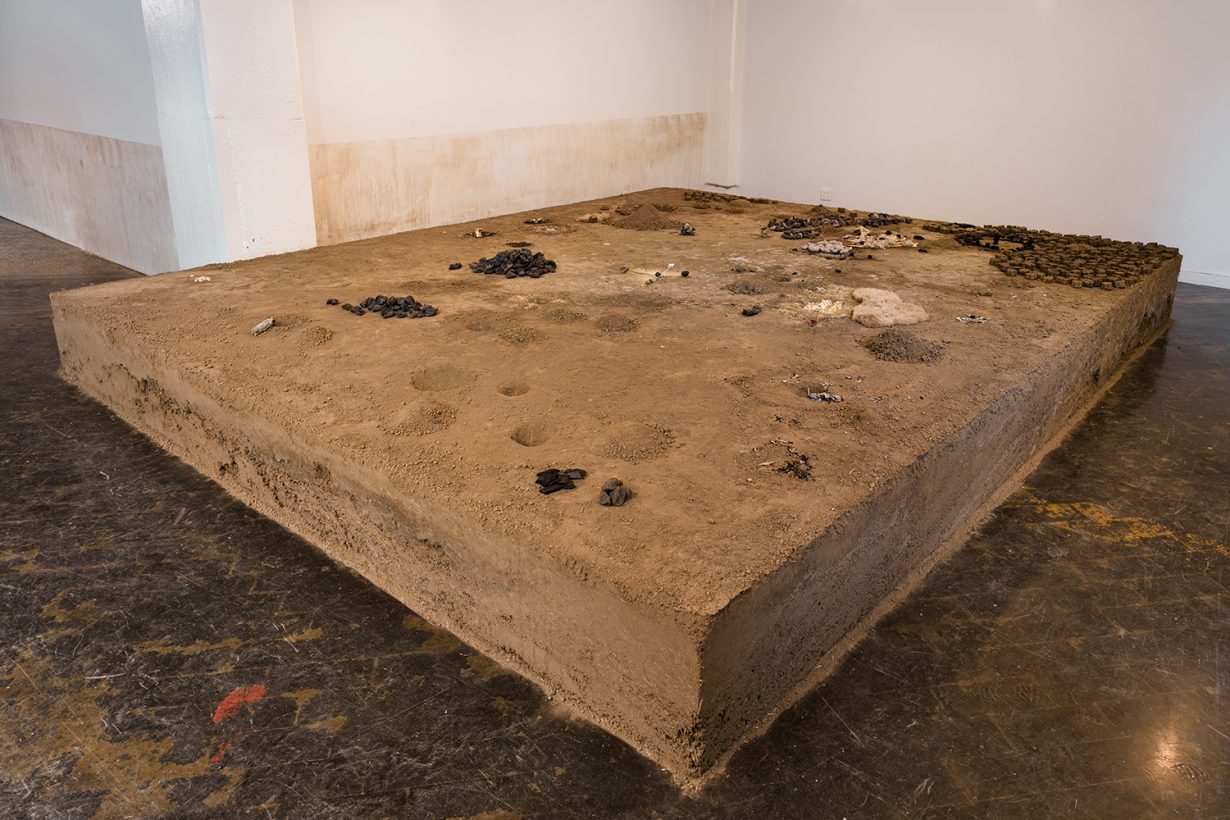
A Bridge to Jump over the Water
RS Plants play a big part in your work. Are they also a big part of your life?
DSB [laughs] Yeah.
RS Why are you laughing?
DSB Because I’m looking around and plants are everywhere in my studio: pots of tea, incense, dead plants, a living one (or five). A eucalyptus branch. So plants are: every day. We are: friends. This morning, I actually went back to an older work from 2011 and it had pictures of plants in it, and for me there was this longing in the photographs to connect to the real plants. I asked myself, why did I have photographs of the things rather than the actual plants in the space?
RS Last time we saw each other was actually at a lecture on plant intelligence.
DSB When you say plant intelligence, I become aware that I have a certain anxiety about the word ‘intelligence’ being applied to plants, or the necessity of applying it to plants or to animals, and our relationship collectively with ‘intelligence’ and being ‘smart’, and what is framed as their opposites. The idea that because plants are smart, it’s possible to then have empathy towards them, because they are deemed intelligent. But is it possible to have a relationship of respect for other beings without attributing something that’s ‘valuable’ in our current society? Can that thing be itself? Not stupid, not smart, just itself. Funnily enough, the other day I had a conversation with another artist about ‘Mother Nature’, and they had a similar itch: can nature just be itself without being gendered?
RS ‘Intelligent’ is one of our holy words. We are scared of artificial intelligence and obsessed with intelligent life from other planets.
DSB The ‘intelligence’ thing, the intelligence of a thing, orders the world in a particular, possibly epistemologically Euro-imperialistic-Darwinistic, way. It’s a sociopolitical prejudice for a particular type of logic, I find. And it sends me back to childhood and being able to perform, or not, in particular situations, like playing a game and being able to follow the rules – colouring within the lines of a colouring book, for example. Similarly with IQ tests, which were culturally prejudiced. And that hovers in the same WhatsApp group as European colonial practices, for example the practice of taking indigenous children to colonial boarding schools, where the aim was to raise a child into a particular type of ‘intelligence’, to ‘de-nativise’/‘de-savage’ them. Wow, that erupts so many things in me, hmm. James Baldwin wrote, ‘We do not know enough about the mind,/or how the conundrum of the imagination/dictates, discovers,/or can dismember what we feel,/or what we find’.
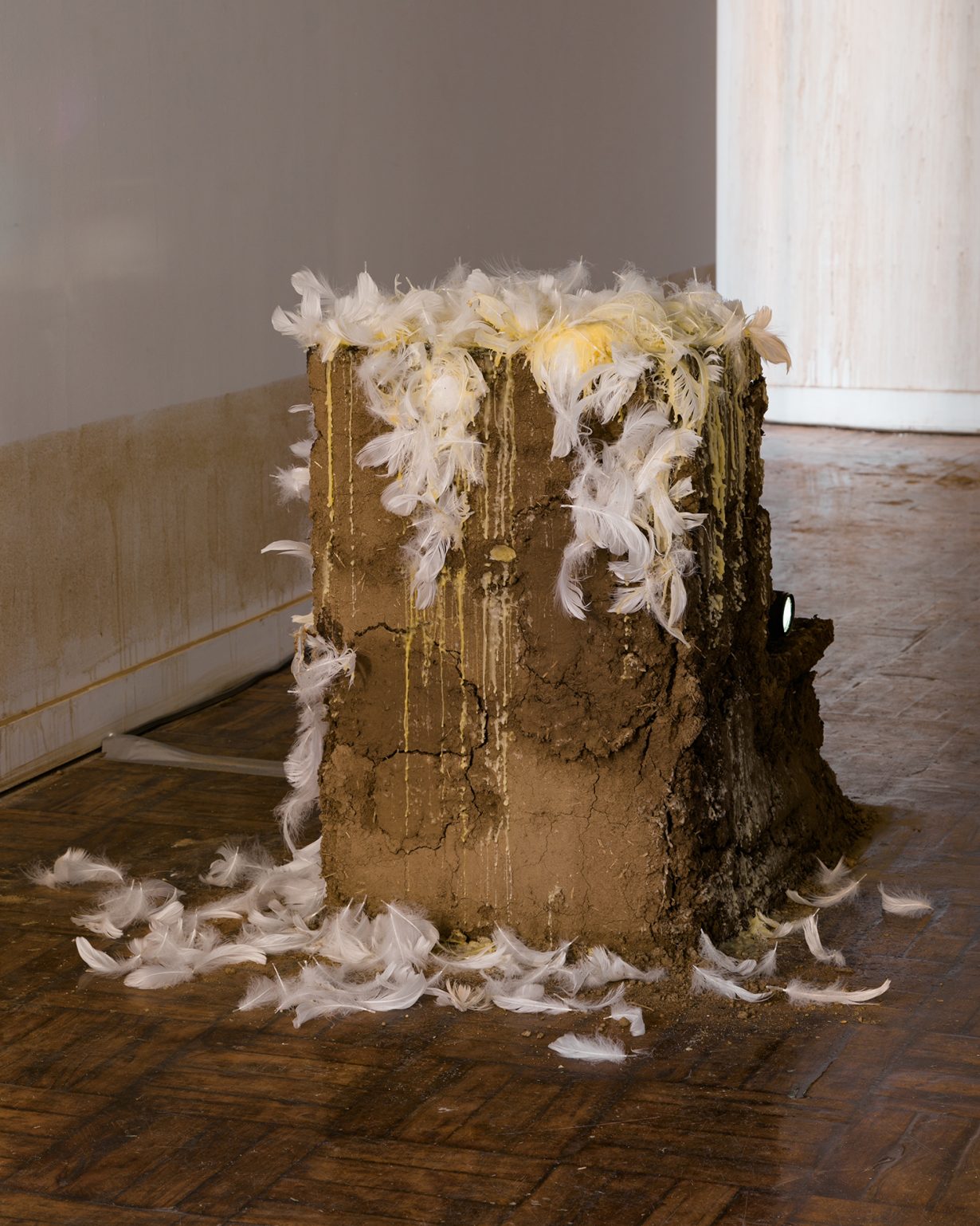
RS Do you favour intuition over intelligence?
DSB When you say that, I also realise that I have a tense relationship with the word ‘intuition’. For some time, that word was a bit ‘scary’, because of how it had been assigned politically, historically. I had a fear that intuitive knowing would be perceived as being lesser than book knowledge. For instance, when asked if I’d planned out my installations. With a particular type of education (politic), planning was over-valued above ‘intuition’.
But words are a bit tricky, because one gets caught up in definition and its matrix. And how does one express something without having to rely on an ‘old’ system – or rather than old, let’s say a wonder-reducing narrative – to make something valid? It’s like the science that’s now describing the function of dreams. Are dreams to be understood only through science? Has it to be trusted only through a particular system of knowing?
RS Are you often asked to explain your art?
DSB Yeah, even the process of interviews is tricky, because it’s also important to draw a window into a space to allow for people to come in. Or a bridge to jump over the water, if the water seems too big. A thread that one can hold on to, to be able to enter the work.
RS Do you find that you need that when you look at art?
DSB Sometimes. All the time. Some works are easy to enter but others need ‘context’. For me, before going to (insert place), I hadn’t really understood the work that was coming out of (insert place), with the artists from there. After having been there, that opened up a new way of reading the work. It’s like visiting a friend that you’ve known awhile, and then you go visit their family or hometown and certain things just become clearer. They become particular to a place, everything becomes connected, and complexities emerge.
Ross Simonini is a writer, artist, musician and dialogist. He is the host of ArtReview’s podcast Subject, Object, Verb
